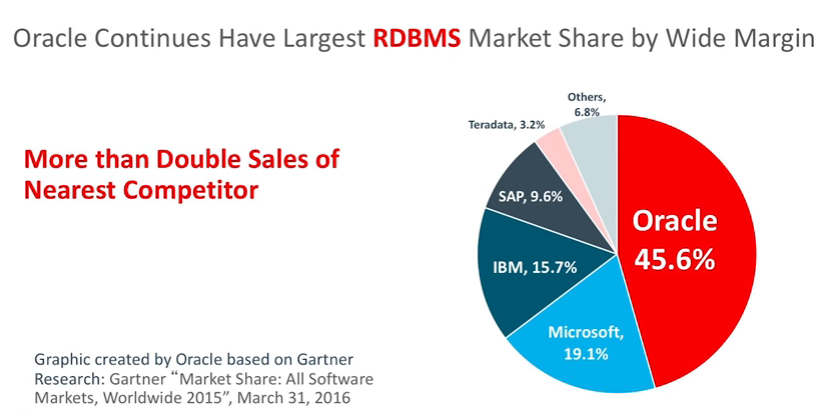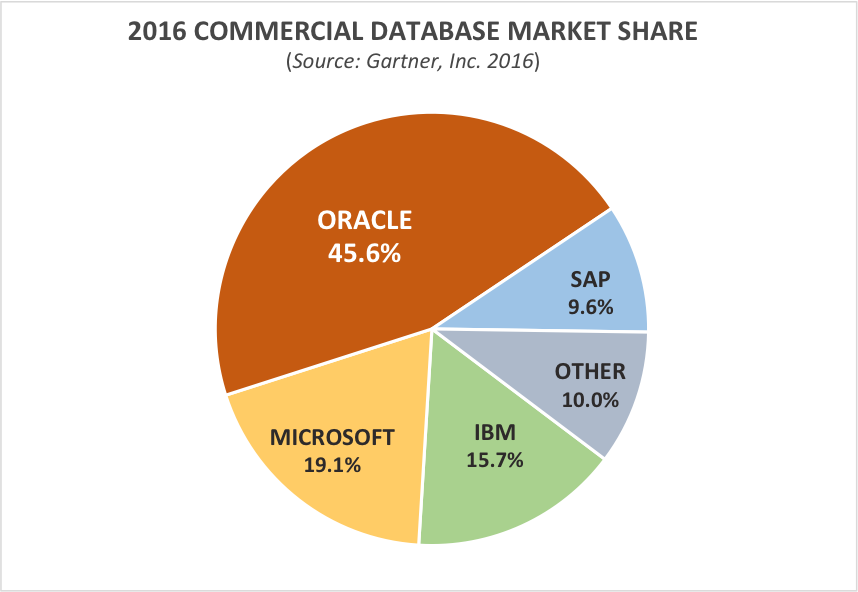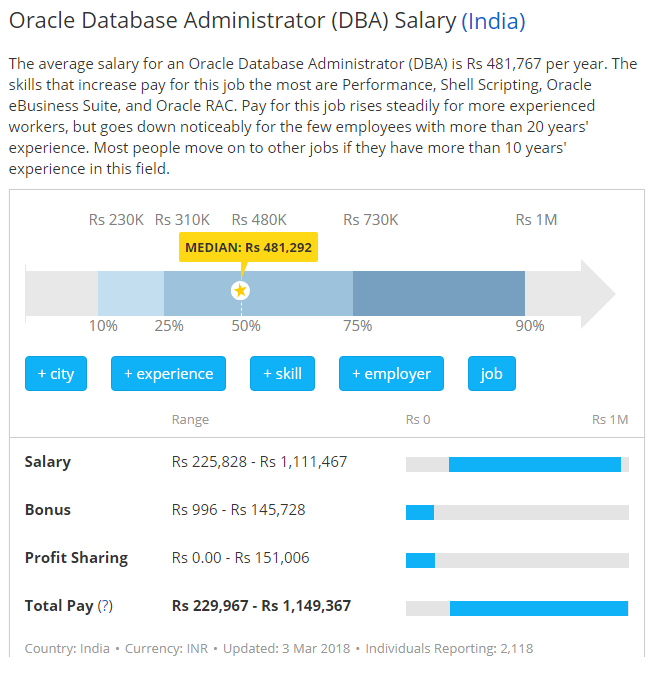Oracle DBA Training
Oracle Database is a multi-model database management system produced and marketed by Oracle Corporation. It is the world’s most popular database for running online transaction processing, data warehousing and mixed database workloads.
Database Administrators (DBAs) are responsible for the design, implementation, support and maintenance of computerized databases in today’s organizations. The role also includes architecting, building and scaling databases for future data growth and capacity. They are also responsible for security, performance and availability of data to users and customers.
About Oracle DBA
Each database requires at least one database administrator (DBA) to administer it. Because an Oracle database system can be large and can have many users, often this is not a one person job. In such cases, there is a group of DBAs who share responsibility.

A database administrator’s responsibilities can include the following tasks:
- Installing and upgrading the Oracle server and application tools
- Allocating system storage and planning future storage requirements for the database system
- Creating primary database storage structures (tablespaces) after application developers have designed an application
- Creating primary objects (tables, views, indexes) once application developers have designed an application
- Modifying the database structure, as necessary, from information given by application developers
- Enrolling users and maintaining system security
- Ensuring compliance with your Oracle license agreement
- Controlling and monitoring user access to the database
- Monitoring and optimizing the performance of the database
- Planning for backup and recovery of database information
- Maintaining archived data on tape
- Backing up and restoring the database
- Contacting Oracle Corporation for technical support
Oracle Database is the most popular database of the world. Today Database management is one of the most lucrative fields in IT. In Fact, Every company has large volumes of data that needs to be efficiently,effectively and securely managed so as to Required Database administrators. This is analyzing, capturing, updating and optimizing highly complex data sets and data stores to ensure high performance and highly available databases.

Features of Oracle Database
Portability
Oracle is ported to more platforms than any of its competition, running on more than 100 hardware platforms and 20 networking protocols. This makes writing an Oracle application fairly safe from changes of direction in hardware and operating system, and therefore a safe bet. One caveat, however, is that applications using some constructs (such as field level triggers) may have to be reworked when porting them to a block mode environment. You can also develop a fairly fully featured application with little knowledge of the underlying OS. Personally, I have developed applications on OS systems barely knowing how to copy and edit text files.
Market Presence
Oracle is by far the largest RDBMS Vendor, and spends more on R&D than most of its competitors earn in total revenue. Oracle has the largest independent RDBMS market share in VMS, UNIX and OS/2 Server fields. This market clout means that you are unlikely to be left in the lurch by Oracle and there are always lots of third party interfaces supported and also, proficient staff are relatively easy to get.
Version Changes
Oracle seem very good at informing you in detail as to what is not going to be supported in the next major release and usually have some knob you can twiddle for good backward compatibility, or simply leave it working, but with “don’t use this, use xxxx instead” warnings in the manual. Backward compatibility is very good meaning you will not be in for an application re-write when you upgrade the DBMS. [Compare this with the Ingres v5->6 OSQL upgrade from hell.] I’ve worked with Oracle since V4 Beta and have never been in for nasty surprises as far as syntax goes. However, see “Version Changes” under disadvantages.
Backup and Recovery
Oracle provides industrial strength support for on-line backup and recovery and good software fault tolerance to disk failure. You can also do point-in-time recovery. Of course, you need the archive mechanisms and storage space to do this, but Oracle supports continuous archiving to tape devices spanning multiple volumes.
Performance
Speed of a *tuned* Oracle database and application is quite good, even with large databases. Oracle refer to >100 GB databases and have personal experience administering 10 GB databases. The performance is not only “raw”, but includes consideration of performance with locking and transaction control.
Cursor Support
Oracle, like Ingres, but unlike Sybase (until Release 10 I think),supports cursors which ease programming when performance is needed. A cursor basically lets you do row-by-row processing. Oracle supports multiple cursors per Oracle connection in line with ANSI standards.
SQL Dialect
The dialect of SQL offered by Oracle is in my opinion superior to the others in the extensions it offers over ANSI-2, which is very much a lowest common denominator. Constructs such as the absolute function and decode keyword are very powerful Oracle additions to the standard SQL.
Multiple Database Support
Oracle has a superior ability to manage multiple databases within the same transaction using a two-phase commit protocol. This is best implemented in V7. You can fairly easily move where data is actually stored from node to node in a network and have data mirroring, making it easy to optimise the location of the data from time to time. This is not so easily done with offerings from other vendors or earlier versions of Oracle, where you were not able to update more than one database in the one transaction with any reliability. This meant that you could not move data around without recoding your programs. With V7, your DBA can optimise the location without pre-planning by programmers or re-examination of the code prior to the move.
The search for a career with almost no risk of layoffs even when company’s downsize then the job is none other than a career in database administration. Skilled database administrators are also in demand in the market. Also as a company’s database continues to grow there is a huge need for individuals who can manage, maintain and develop databases as set up/designs, troubleshooting problems and setting parameters to maximize performance.
Oracle DBA Salary in India

Oracle DBA Salary in India
Employment for DBAs is projected to grow 15 percent between 2012 and 2022, according to the Bureau of Labor Statistics. While that’s a slightly slower gain than is anticipated for some other areas of technology, it’s still significant enough to get attention. Among those DBAs, industry watchers say, many positions will go to those with Oracle DBA experience.
Focus Training Services Provides Oracle DBA Training with highly experienced trainers.
We are focusing to fill the gap of industry requirement and available resources.
at Focus Training Services, we give hands on practice training in Oracle DBA and give real time scenario to clear the doubts
Focus Training Services is offering Oracle DBA with SQL and Linux which enables our students to get be best technical exposure and career opportunities.
Our Oracle Databse Experts
Our Oracle Database Experts
Mr. Siddharth Reddy
- More than 25 years of experience in training and development.
- worked with Oracle Technologies.
- 100+ Corporate training
- Trained 5000+ Candidates
Our Oracle Database Expert
Mr. Avinash
- More than 7 years of experience in training and development.
- worked with Cognizant.
- 7+ Corporate training.
- Trained 2000+ Students